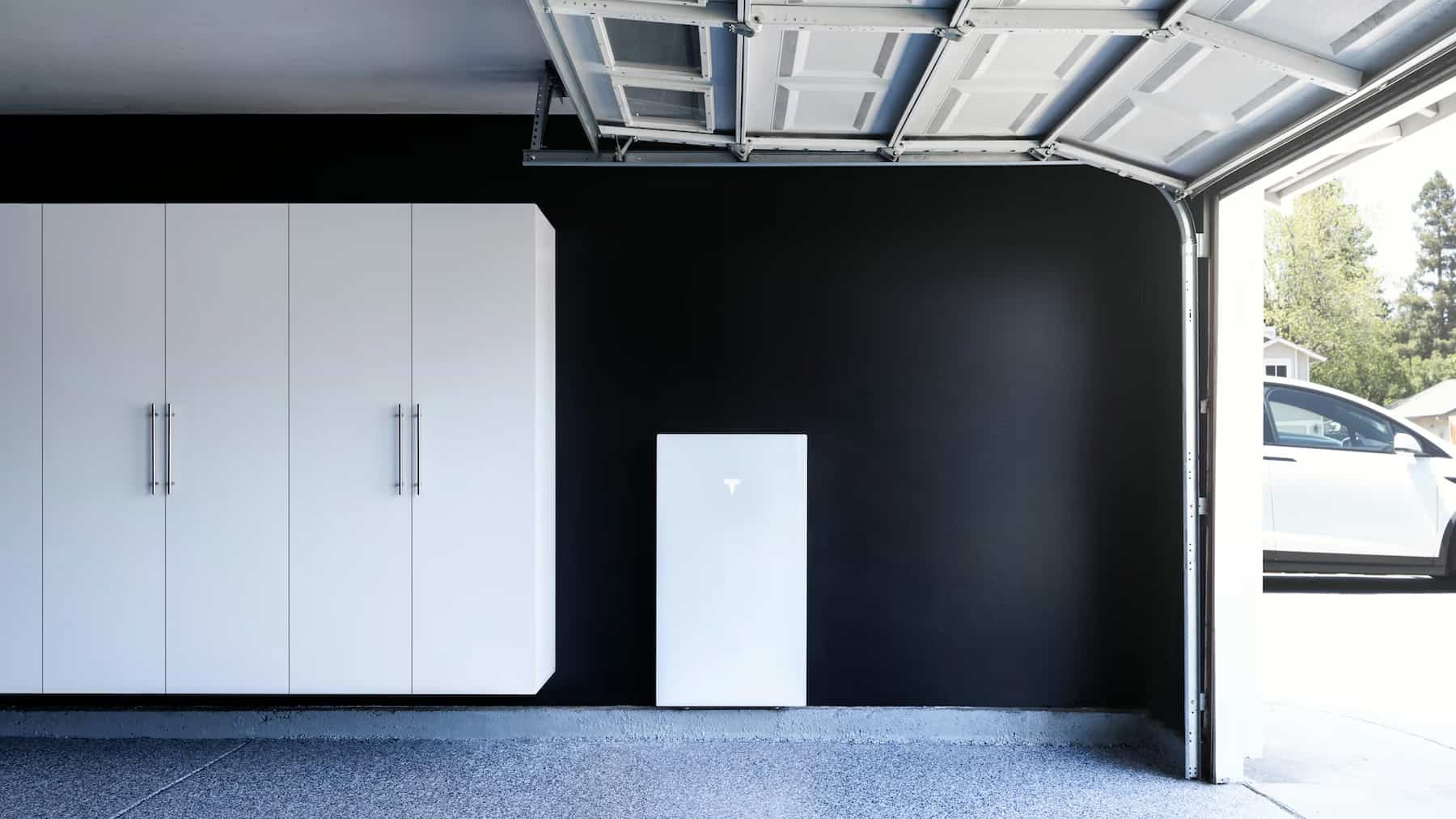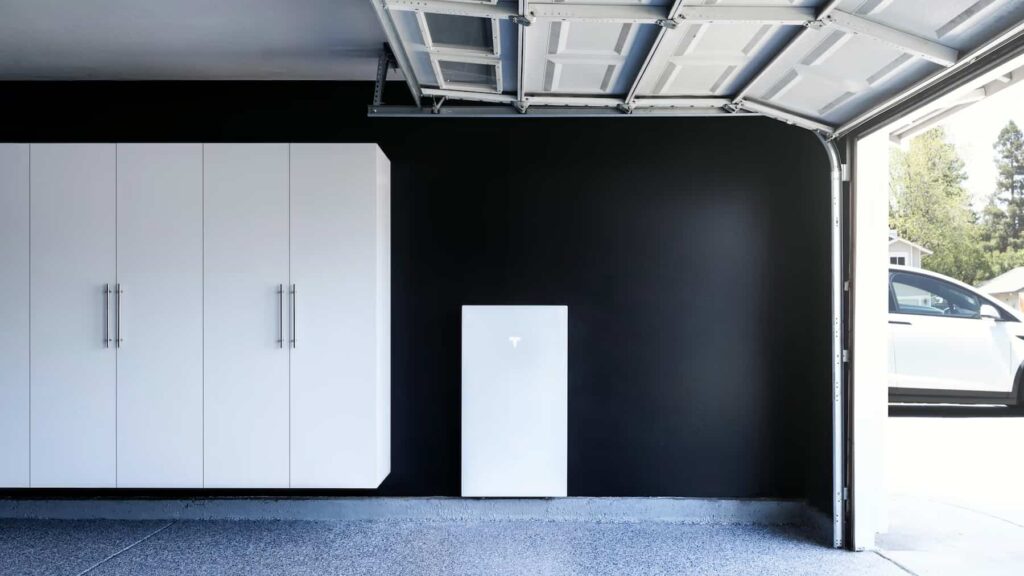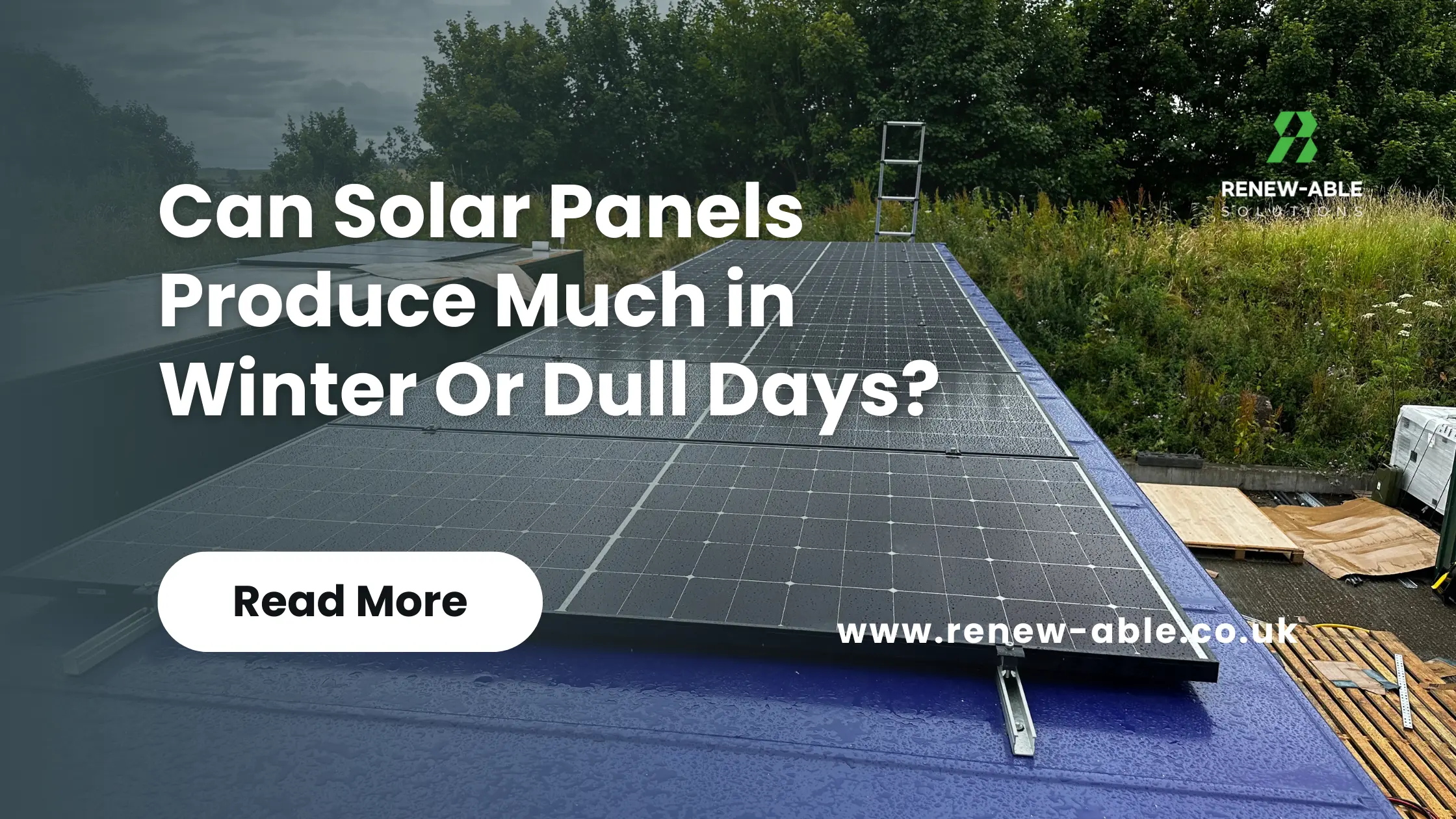
Battery Storage Solutions Compared
AC Coupled Battery Systems
AC-coupled batteries are a very popular choice when retrofitting a battery storage system to an existing solar panel array.
This is because the battery effectively sits on its own circuit with its own inverter / BMS (Battery management system).
As a lot of people who decide to retrofit a battery are signed up to the government’s Feed-in Tariff scheme, using the AC-coupled battery allows them to have a battery installed without affecting their feed-in tariff.
Although there are a lot of merits to the AC coupled system there are also some drawbacks/trade-offs for the convenience.
Batteries store power in DC and Solar panels generate DC electricity, it is the job of the inverter to convert this, with an AC coupled system the solar panels generate DC electricity which is then converted to AC, the AC power will then need to be converted back to DC power by the battery inverter / BMS to be stored and then converted back to AC when the battery discharges power to be used in the home.
This creates unnecessary conversions, each time you convert the electricity you will lose a bit of power.
The inverter/s is the component within the solar and or battery system that will fail regardless of manufacturer warranty and need replacing usually around year 10, therefore it makes sense to install as few as possible for your solar panel array.
Based on the above we would therefore only recommend AC-coupled batteries on retrofit projects.

DC Coupled Battery Systems (also known as a hybrid inverter)
DC coupled or Hybrid batteries as they are also called, have become very popular in recent years, especially on a new project where the client does not already have solar panels installed.
A DC-coupled battery installation means that the battery is on the DC side of the Solar inverter and therefore the DC power generated by your solar panels can be stored as DC until you need to use it.
This cuts out the unnecessary conversions that an AC-coupled system causes thus improving the efficiency of the solar panels.
The DC coupled system also requires less hardware so it can be cheaper to install and comes with less potential maintenance costs in the future.
Should you decide you would like the option of power in the event of a power outage the DC coupled system can offer much simpler solutions and usually the opportunity to keep the solar running through the outage enabling it to keep the battery topped up.
The DC coupled system does have a couple of drawbacks, one of them is the requirement for the batteries to be relatively close to the inverter.
It’s also worth checking the inverter and battery are universal in the sense that they work with other brands, this means should you change the inverter manufacturer for example in the future the battery cells will still work.
We would recommend where possible the use of DC-coupled batteries on new installations and existing ones if there is no Feed-in tariff.

Which choice is best for me if I am receiving FIT payments?
OFGEM issued new guidance in November 2023 where it outlines in quite complex detail what would happen to your FIT payments if adding in battery storage to your existing system.
To help cut through all of the technical jargon we have tried to explain this below and what impact this may have on your payments.
AC Coupled – AC Coupled system are after your existing generation meter and therefore the most simple way to not interfere with FIT payments however it will mean that you need a G99 application to your DNO and they do sometimes charge a fee for this. If you add an AC Coupled system you do not normally need to let your FIT provider know.
Hybrid – When installing a Hybrid inverter it will mean that your FIT payments will be affected as the existing generation meter will need to be removed for a Bi-Directional generation meter which monitors energy to and from the battery. On top of this you do need to let your FIT provider know of this and you then go onto NET metering.
Time of use tariffs – A battery is a substantial investment and if you want to maximise savings and ROI then being able to move onto a TOU tariff such as Octopus Go can help reduce pay back times dramatically. In summer time in the UK you can normally be “off grid” whereby you do not need to draw much from the grid your battery should charge from solar only and in winter this tariff can help you save up to 75% on day time rates.
Here are six of the main benefits of battery storage:
1. Save money on your energy bills
One of the biggest benefits of battery storage is that it can help you save money on your energy bills. By storing excess energy generated by your solar panels or other renewable energy sources, you can use it to power your home when electricity prices are high.
In addition, some battery storage systems allow you to participate in demand response programs, which can earn you money for reducing your electricity consumption during peak periods.
2. Reduce your reliance on the grid
Battery storage can also help you reduce your reliance on the grid. This can be beneficial for several reasons.
First, it can make your home more resilient to power outages. If the grid goes down, your battery storage system can provide backup power to keep your essential appliances running.
Second, reducing your reliance on the grid can help you reduce your carbon footprint. The grid is powered by a mix of energy sources, including fossil fuels, which contribute to climate change. By using battery storage to power your home with renewable energy, you can help reduce your impact on the environment.
3. Live more sustainably
If you’re looking to live a more sustainable lifestyle, battery storage is a great way to do it. By storing excess energy generated by your solar panels or other renewable energy sources, you can reduce your reliance on fossil fuels.
In addition, battery storage can help you reduce your energy consumption overall. By using your stored energy to power your home when electricity prices are high, you can avoid paying peak rates.
4. Increase the value of your home
Battery storage systems can also increase the value of your home. Buyers are increasingly looking for homes with sustainable features, such as solar panels and battery storage.
A study by the National Renewable Energy Laboratory found that homes with solar panels and battery storage sold for an average of 4.1% more than homes without solar panels or battery storage.
5. Support the transition to a clean energy future
Battery storage is essential for the transition to a clean energy future. By storing excess energy generated by renewable energy sources, battery storage can help to balance the grid and make it more resilient.
In addition, battery storage can help to make renewable energy more affordable and accessible to everyone.
6. Peace of mind
Knowing that you have a backup power* source in case of a power outage can give you peace of mind. Battery storage systems can provide backup power for your essential appliances, such as your refrigerator, freezer, and medical equipment. Although batteries offer a back up this will require wiring for either UPS or EPS and is not automatically offered with an install.
Conclusion
Battery storage systems offer a number of benefits for homeowners. They can help you save money on your energy bills, reduce your reliance on the grid, live more sustainably, increase the value of your home, support the transition to a clean energy future, and give you peace of mind.








